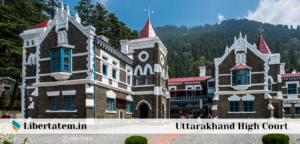In the case of Mohit Negi vs. State of Uttarakhand and others, the Public Interest Litigation Jurisdiction of the High Court was invoked by the petitioner seeking a writ of certiorari to quash the October 2019 orders of the Government. The petitioner questioned the change in the policy of the government regarding district wise reservation of chairpersons of Zila Panchayats for the purpose of elections, whereby the post of chairperson of Zila Panchayat in Dehradun District has been allotted to Scheduled Tribe Women Candidates. The petitioner claims that the writ petition pertains to the lack of good governance and falls within the ambit of Rule 3 of the PIL rules of the court.
Petitioner’s Arguments
The petitioner states that the Government Order regarding the reservation of the post of chairperson came while the elections were in progress. When the government invited objections to the same, the petitioner submitted his objections and the same was rejected by proceedings in October 2019. The learned counsel for the petitioner submitted that reserving the post of the chairperson was not only contrary to Article 243 D(4) of the Constitution but was also in violation of Rule 3 of the Reservation Rules, 1994. According to the 1994 rules, it is only if the percentage of the scheduled tribe population exceeds 0.5% can reservation be provided in their favour. However, their population was merely 0.38% of the population. In order to overcome this hurdle, the government had added the population of the scheduled tribes in the last four elections to arrive at a figure of more than 1%.
Respondent’s Arguments
The learned counsel appearing for the state submitted that in the preceding three elections, no post in the Zila Panchayat was reserved in favour of scheduled tribes. They also stated that if the 1994 rules were to be read in isolation, then it was not possible to ever reserve any seat for the scheduled tribe’s community. They also submitted that the PIL jurisdiction of this court could not be invoked and that if any person was aggrieved by the same, then they could pursue appropriate legal proceedings against the government.
 Court’s Decision
Court’s Decision
The court observed that the proviso to Article 243 D(4) of the Constitution requires the number of offices of Chairpersons reserved for the Scheduled Tribes in the Panchayats at each level in any State to bear, as nearly as may be, the same proportion to the total number of such offices in the Panchayats at each level as the population of the Scheduled Tribes in the State bears to the total population of the State.
The court emphasized on the words, “as nearly maybe” and stated that it was evident from the above words that while reserving the post for the Scheduled Tribes community, mathematical precision was not required. What the proviso requires is not a mathematically precise determination of the percentage of the population of the Scheduled Tribes vis-à-vis the percentage of the entire State, but for such population of the Scheduled Tribes to be determined “as nearly as may be” in proportion to the population of the State. Accepting the submission urged on behalf of the petitioner, would mean that no post of Chairperson, Zila Panchayat can ever be reserved in favour of the Scheduled Tribes, despite their presence in large number in various districts of the State of Uttarakhand.
The Jurisdiction of this Court can be exercised only in furtherance of the interest of justice and in the larger public interest, and not merely on a legal point being made out. The interest of justice and the public interest are very often considered one and the same. The Court has to keep public interest in view while exercising its discretionary powers, stated the court after citing several judgements on the point. As the jurisdiction which this Court exercises its discretionary, and this Court would not, interfere even if a legal flaw is detected electronically, unless it is in the interest of justice and society, the court remarked.
The court concluded that it sees no reason to entertain the petition as the petitioner himself did not intend to contest elections and claimed to espouse larger public interest through this petition and that by reserving one post in favour of the Scheduled Tribe community, no large public interest has been served or failed. The writ petition was dismissed accordingly.
Libertatem.in is now on Telegram. Follow us for regular legal updates and judgements from the court. Follow us on Google News, Instagram, LinkedIn, Facebook & Twitter. You can also subscribe for our Weekly Email Updates. You can also contribute stories like this and help us spread awareness for a better society. Submit Your Post Now.

 Court’s Decision
Court’s Decision